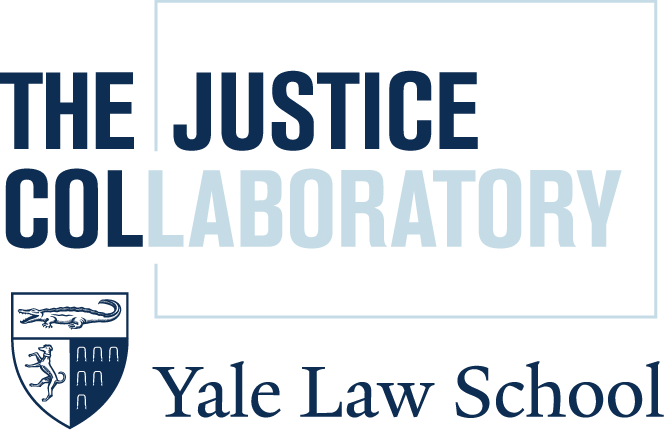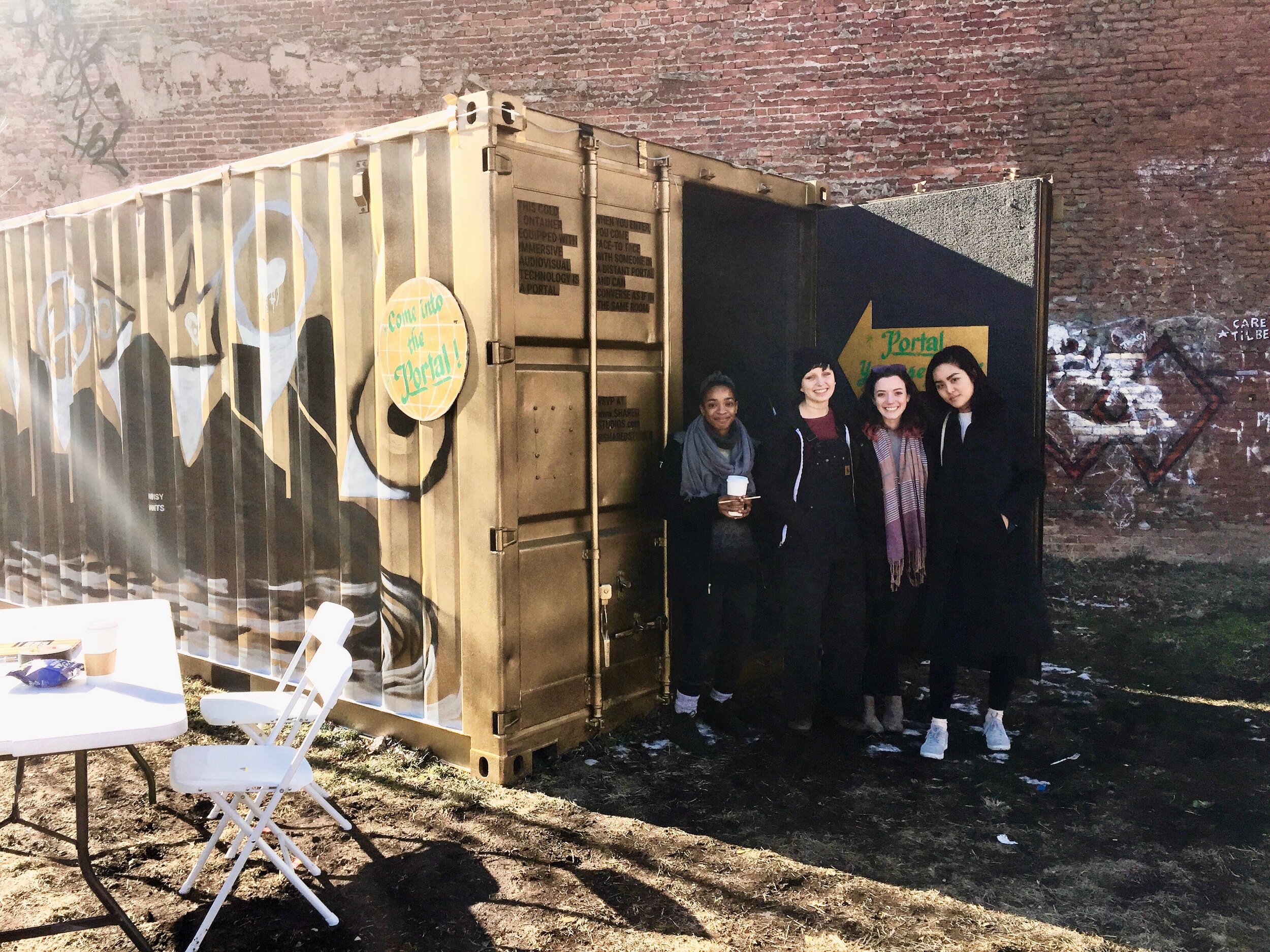Projects
Our work is driven by a diverse community of scholars who conduct justice-focused, community-oriented theoretically grounded work.
Scholar
- Andrade 1
- Aunger 1
- Ayres 1
- Badiei 3
- Baskin-Sommers 1
- Bell 3
- Betts 1
- Bradford 1
- Camacho 1
- Cox 2
- Dessources 1
- Diodati 1
- Erickson 1
- Friedman 1
- Gluck 1
- Goff 1
- Granot 1
- Gripp 6
- Hinton 1
- Jha 1
- Johnston 3
- Katsaros 7
- Kazar 1
- Kim 1
- Kraschel 1
- LaGratta 1
- Lewis 1
- McDonald 1
- Meares 13
- Meyer 1
- Nobo 7
- O'Brien 1
- Parigi 1
- Peyton 1
- Pineda 1
- Prowse 1
- Puglisi 1
- Quattlebaum 3
- SMGI special volume 1
- Schoenebeck 1
- Seau 1
- Sperrazza 1
- Stewart-James 1
- Tyler 16
- Vaughn 3
- Venkatesh 6
- Wang 1
- Weaver 1
- Wheelwright 1
- Yang 1
Elevating Trust and Legitimacy for Prosecutors Project 2.0
Yale Law School’s Justice Collaboratory has partnered with the Association of Prosecuting Attorneys and LaGratta Consulting to develop the Elevating Trust and Legitimacy for Prosecutors Project. Through a multi-phase site selection process, project partners chose the Salt Lake County District Attorney’s Office, Saint Paul City Attorney’s Office and Columbus City Attorney’s Office as the project pilot sites to engage in a year-long collaborative assessment, planning, and implementation process of procedural justice practices.
Elevating Trust and Legitimacy for Prosecutors Project
Yale Law School’s Justice Collaboratory has partnered with the Association of Prosecuting Attorneys and LaGratta Consulting to develop the Elevating Trust and Legitimacy for Prosecutors Project. Through a multi-phase site selection process, project partners chose the Salt Lake County District Attorney’s Office, Saint Paul City Attorney’s Office and Columbus City Attorney’s Office as the project pilot sites to engage in a year-long collaborative assessment, planning, and implementation process of procedural justice practices.
Workers’ Perspectives Study of Procedural Justice and Criminal Justice System Legitimacy
The Justice Collaboratory conducted a study of perspectives of individuals working at the frontline of six key institutions in New York City’s criminal justice system: prosecutors, defense attorneys, judges, correction officers, probation officers and Criminal Justice Agency interviewers.
RADx Underserved Populations (RADx-UP)
This National Institutes of Health (NIH) program aims to better understand COVID-19 testing patterns among underserved and vulnerable populations disproportionately affected by the pandemic; strengthen the data on disparities in infection rates, disease progression and morbidity and mortality; and develop strategies to reduce the disparities in COVID-19 testing, rates of infection, and outcomes.
Qualitative Assessment of Project Longevity in New Haven, CT
This study qualitatively examined Project Longevity, Connecticut’s largest GVI initiative, to contribute to the limited literature on implementation of gun violence reduction strategies.
Portals Policing Project
Despite the transformation of policing and rising prevalence of encounters with the justice system, current research is ill-suited to help us understand how the Michael Browns of America come to experience the police and state authority more broadly. This important work requires a better way to measure these dynamics across communities. And it requires that we center the voices of the unfree. That we listen. The Portals Policing Project aims to do just that.
National Initiative for Building Community Trust and Justice
The Justice Collaboratory and members of the National Initiative for Building Community Trust and Justice have designed intervention programs that aim to improve police-community relations in six pilot cities around the country.
Freedom Reads
Freedom Reads harnesses the power of literature to counter what prison does to the spirit. In the recognition that reading affirms our dignity, strengthens our sense of self and lets us access our authentic interests, Freedom Reads is placing 500-book Freedom Libraries in prisons across the country.
Law, Policy & Guns
Through a series of public events, a new course offering, cutting-edge scholarship, and a special issue of The Journal of Law, Medicine & Ethics, the Justice Collaboratory in conjunction with the Solomon Center for Health, Law & Policy is placing a special focus on addressing the epidemic of gun violence in America.
How do Communities Respond to Gun Violence Prevention Policies?
This project involves a qualitative evaluation of gun violence prevention services in New Haven, utilizing a community-based participatory action research (CBPAR) model. Its goal is to explore: (1) How do individuals and communities impacted by gun violence understand its underlying causes and experience its effects? (2) How do individuals and communities experience gun violence prevention work?
Does Birdwatch work?
Twitter launched a project called Birdwatch which allows some form of community governance. Using this data we want to examine the success of Birdwatch.
Community Vitality Study
The Community Vitality Study (CVS) is a series of research surveys of police officers and the residents of US cities. The primary goal of the CVS is to better understand the views that both residents and police officers have on police-community relations and other local public policy issues.
Civility on Nextdoor
We have partnered with Nextdoor to test alternatives to punitive governance mechanisms.
A Study of Procedural Justice & Juveniles: The Influence of School Resource officers (SRO Study)
The Justice Collaboratory explored the influence of school-based policing on adolescent safety and wellbeing, as well as on juvenile perceptions of the criminal justice system.
A Community Study of Procedural Justice & Criminal Justice System Legitimacy (MOCJ)
The Justice Collaboratory conducted a community study on behalf of the New York City Mayor’s Office of Criminal Justice (MOCJ), looking into New Yorker’s engagement with the city government.















